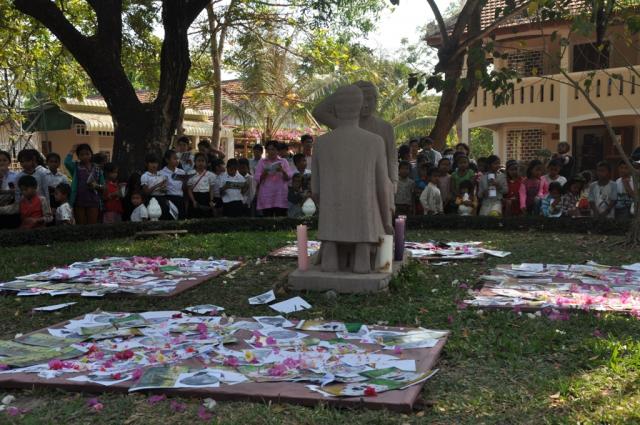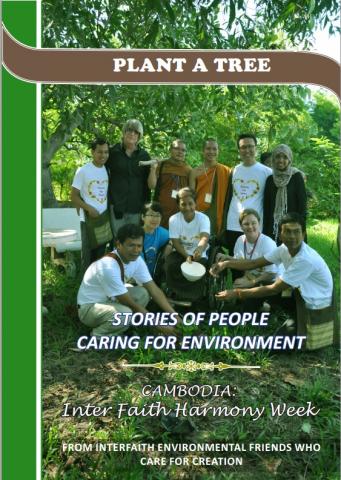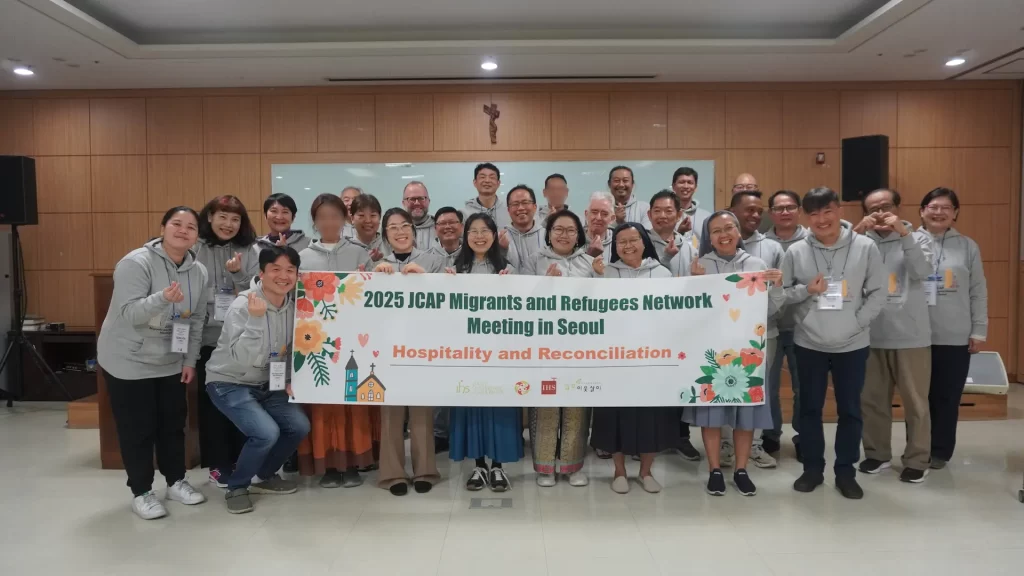Jesuit Refugee Service Cambodia marked World Interfaith Harmony Week with an interfaith event at Mindol Metta Karuna on February 8. The event gathered people of different faiths who want to work together for justice, peace and a development that sustains all especially the poorest and most excluded.
During the event, participants were asked to think about what they could do for a world of justice and peace, and make a promise by choosing one of the following and placing it in the Interfaith circle.
- If you promise to be peaceful in your family or school. Take a dove.
- If you decide to plant tree or look after cleanliness of your environment. Take a tree.
- If you decide to help people have a country to live in. Take a world.
- If you decide to make the road easier for a handicapped person. Take a wheelchair.
- If you want Cambodia to ban cluster bombs. Take a ban paper.

In her introduction, Sr Denise Coghlan rsm, Director of JRS Cambodia, said that the workshop had been inspired by Nao Sok, who has planted trees in all over Cambodia. He was inspired to begin his work after seeing photos of starving people in Africa, affected by drought without trees. Cambodia could have the same suffering.
Sr Coghlan shared some words of wisdom from the meeting.
“They plant five trees and it is big news, but when they cut many trees they are silent.” (Minority Group)
A smile is charity. Planting a tree is charity. That lasts much longer than a smile. (Islam)
The forests are gift from God. Be thankful. (Christian)
Tie a saffron ribbon to protect the trees. (Buddhism)
In his story on Interfaith cooperation for sustainability development, Ernst Jurgensen wrote, “practically and symbolically the planting of a tree can bring people from various religious
groups together for a common cause, for instance, sustainable development. All Cambodians regardless of faith are affected adversely by deforestation, so there is a need to initiate collaboration across faith boundaries; in local communities, between religious institutions and top leaders. The engagement and cooperation of all levels of religious communities is pivotal in promoting a new path of sustainable development. Only by working together for sustainable development can Cambodia’s forests be saved before it is too late.”
JRS Cambodia hopes that the stories in the booklet will inspire readers to care for the environment.
Download “Plant a Tree: Stories of People Caring for Environment” here.







